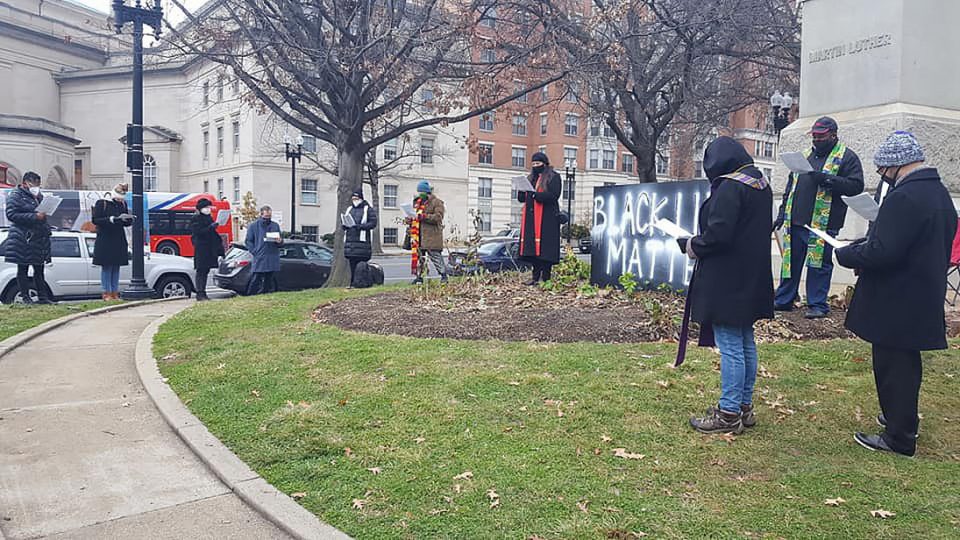A few days ago, on Jan. 6, the U.S. Capitol became ground zero of a display of insurrection. When the crowd unlawfully and violently stormed the building, we witnessed sinfulness masquerading as patriotism. When they acted on baseless conspiracy theories under banners that proclaimed, “Jesus Saves” and “Jesus is my Savior, Trump is my President,” we witnessed heresy in real time. Some in the crowd carried known signs of white supremacy. It was shocking and painful to behold.
Anne Lamott, in struggling with her own confrontations with evil, writes this: “How—if we are to believe that there is meaning in our brief time here on earth, that mercy is the ground of our being and love is sovereign—do we explain childhood cancer, earthquakes, addiction? Where is mercy in a beloved’s suicide? In the Christian tradition, we say that Christ continues to be crucified, in tsunamis, sick children, political prisoners and that we must respond.”
As Lamott insists, we must respond. How do we, a denomination that has members from all political parties, faithfully do so?
Guidelines for speaking truth
As Lutherans, we’re intimately familiar with call-and-response.
A worship leader says, “The Lord be with you.”
We respond, “And also with you.”
Lift up your hearts.
We lift them to the Lord.
Let us give thanks to the Lord our God.
It is right to give our thanks and praise.
These words are etched into our collective consciousness. We respond when prompted. So it is with this occasion in our national narrative. We must respond. And the response cannot be of God unless it is couched in words of peace with justice and reconciliation.
The Lord be with you in your response, because only by wishing God’s presence into the midst of our dialogue can we bridge the ideological divides that cripple our individual and collective growth in community. It’s not enough to simply spout off on Facebook or unfriend anyone who disagrees with your venting. Your response might require calling elected officials. It might call you to have nuanced and loving conversations with relatives whose ideas are markedly different from yours, committing to loving them even if and when they refuse to change their beliefs in the face of real and compelling data.
Lift up your hearts before initiating your response, because the psalmist reminds us every Ash Wednesday that “a broken and contrite heart” will not be despised by God. God is present in brokenness. God can take what little we offer and inspire us to do justice, love kindness and walk humbly with God. Those of us who identify as white must discern how and when to speak. We must check our own privilege and bias at the door. Most importantly, we must assume the best intentions of our siblings of color, even when they respond in ways that make us uncomfortable (this dis-ease might be the Spirit at work, after all).
Finally, let us give thanks to the Lord our God. Only through framing our response as an act of praise will we gain focus and proper intent. If we respond to acts of destruction, violence and hatred with the love of God and neighbor first and foremost, even our mistakes will be better than attempts wrought through our own vainglorious sense of ambition or righteousness. Disavowing our need to be right to be in relationship is easier when we strive to see people as God sees them. This is so difficult because it subverts everything we assume about piety and righteousness. Yes, people must be held accountable for their actions, but no one is beyond God’s grace.
We must respond, people of faith. We must respond to this and other violent actions by faithfully engaging with our neighbors in a way that signals peace, tempered by accountability and wisdom to discover the truth. May God be with us—and also with our neighbors—as we seek to serve in these extraordinary times.




